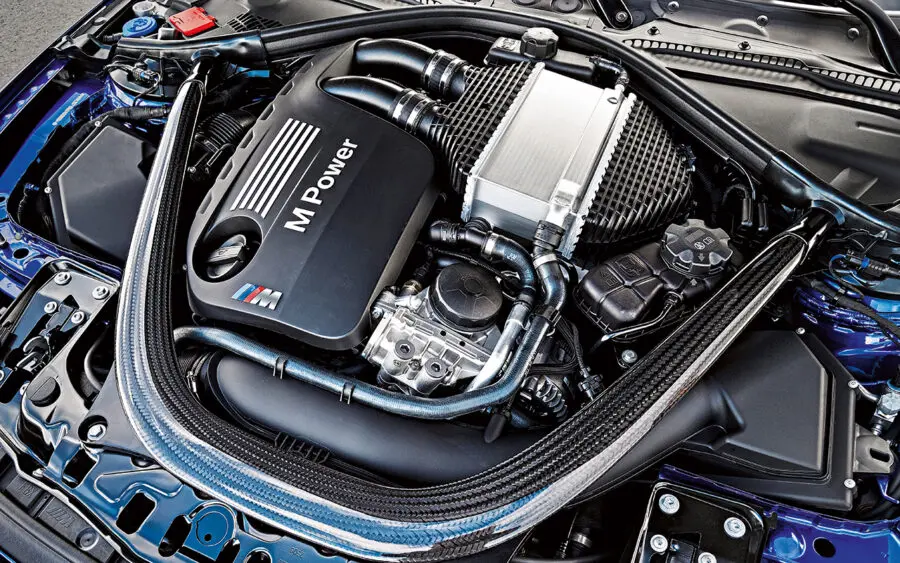A New user's Overview to Picking the Right BMW Engine for Your Demands
A New user's Overview to Picking the Right BMW Engine for Your Demands
Blog Article
Revealing the Intricacies of Next-Generation Power Units: a Deep Dive Into Advanced Engine Layouts and Technologies
As we stand on the precipice of a new period in transport, the complexities of next-generation engine designs bid us to explore the advanced innovations and advancements that assure to redefine the driving experience. Delving much deeper into the realms of exhaust control, smart engine monitoring systems, and the horizon of power unit growth, we locate ourselves on the cusp of a change that guarantees to improve the landscape of flexibility as we know it.
Advancement of Engine Products

The shift towards advanced engine materials has actually likewise enabled designers to create engines with greater power outputs while preserving gas effectiveness requirements. The use of light-weight products lowers the general weight of the engine, leading to enhanced gas economy and lower exhausts. Additionally, innovations in materials technology have enabled for better thermal management within engines, resulting in boosted integrity and durability.
Turbocharging and Supercharging Technologies
How do Turbocharging and Supercharging Technologies reinvent engine efficiency and performance in modern-day cars? Turbo charging and turbocharging are innovations that significantly improve engine efficiency by increasing the quantity of air intake right into the burning chamber. Turbocharging achieves this by using a generator driven by exhaust gases to pressurize the consumption air, while supercharging makes use of a belt- or chain-driven compressor to accomplish the very same effect.
These innovations make it possible for smaller, a lot more fuel-efficient engines to generate power equivalent to bigger ones, recognized as downsizing. By forcing more air into the cylinders, turbocharging and supercharging enhance combustion performance, leading to enhanced horse power and torque outcome without a substantial boost in engine dimension. This causes better velocity, lugging capacity, and total driving efficiency.
Furthermore, turbocharging and supercharging add to enhanced gas effectiveness by permitting the usage of smaller engines that eat less fuel under normal driving conditions - bmw engine. This combination of improved efficiency and efficiency has made turbocharging and supercharging important elements of numerous contemporary engine layouts
Exhaust Control and Environmental Impact
With raising worldwide concerns relating to air top quality and ecological sustainability, the implementation of emission control modern technologies in vehicles plays a critical duty in reducing damaging toxins launched right into the environment. Modern cars are furnished with sophisticated discharge control systems that aid reduce the ecological effect of auto procedures. Catalytic converters, for example, are designed to transform hazardous gases such as carbon monoxide, nitrogen oxides, and hydrocarbons right read into less dangerous materials like co2 and water vapor.
Moreover, improvements in engine innovation, such as the integration of exhaust gas recirculation systems and careful catalytic decrease, have actually dramatically contributed to decreasing exhausts. These modern technologies function in tandem to enhance burning efficiency and lessen the launch of unsafe pollutants right into the air. In addition, the growth of hybrid and electric cars stands for a crucial step towards decreasing the overall ecological impact of the transportation market.
Intelligent Engine Monitoring Equipment

In addition, these systems make it possible for cars to fulfill rigorous emissions standards without endangering efficiency, providing an extra environmentally pleasant driving experience. The integration of fabricated intelligence and artificial intelligence capacities in engine reference management systems remains to press the limits of what is feasible, resulting in additional renovations in effectiveness, reliability, and general lorry efficiency. bmw engine. As vehicle technology breakthroughs, smart engine monitoring systems will certainly play a critical role in shaping the future of transport in the direction of a more reliable and sustainable direction
Future Trends in Power System Growth
As smart engine monitoring systems pave the way for improved control and optimization in modern-day automobiles, future fads in power device advancement are poised to redefine the landscape of automobile propulsion modern technologies. These alternative power resources supply improved efficiency and efficiency while straightening with rigorous ecological laws.
Another significant trend is the integration of advanced materials and making techniques. Light-weight materials such as carbon fiber and aluminum are being utilized to reduce overall vehicle weight, boosting gas performance and efficiency. In addition, developments in 3D printing and additive manufacturing are making it possible for the production of complicated engine elements with higher precision and resilience.
Additionally, expert system and equipment learning are playing an important duty in optimizing power device performance. These modern technologies allow for real-time surveillance and adaptive control, resulting in extra trusted and effective power delivery. Generally, future trends in power system growth are geared in the direction of effectiveness, efficiency, and sustainability, driving the auto industry in the direction of a brand-new age of propulsion modern technologies.

Conclusion
In verdict, the improvements in engine materials, turbocharging, discharge control, and intelligent monitoring systems have led the way for next-generation power devices. These advancements have not only better performance and performance however also lowered environmental influence. As innovation proceeds to evolve, future fads in power system advancement are most likely to concentrate on more improving sustainability and maximizing power outcome. The here elaborate designs and innovations in contemporary engines display the ongoing evolution of automotive technology.
Checking out the progressive improvements in engine materials has actually been critical in improving the performance and performance of modern-day engines. Over the years, the evolution of engine materials has actually played a crucial function in pressing the limits of what engines can accomplish.The change towards progressed engine products has likewise enabled designers to make engines with higher power outcomes while preserving fuel effectiveness requirements.The application of intelligent engine administration systems in modern vehicles has revolutionized the means engines are regulated and maximized for efficiency and effectiveness. By gathering data in real-time and analyzing it with innovative formulas, intelligent engine management systems can adapt to driving designs, ecological aspects, and engine health and wellness to make the most of power output while minimizing gas usage and emissions.
Report this page